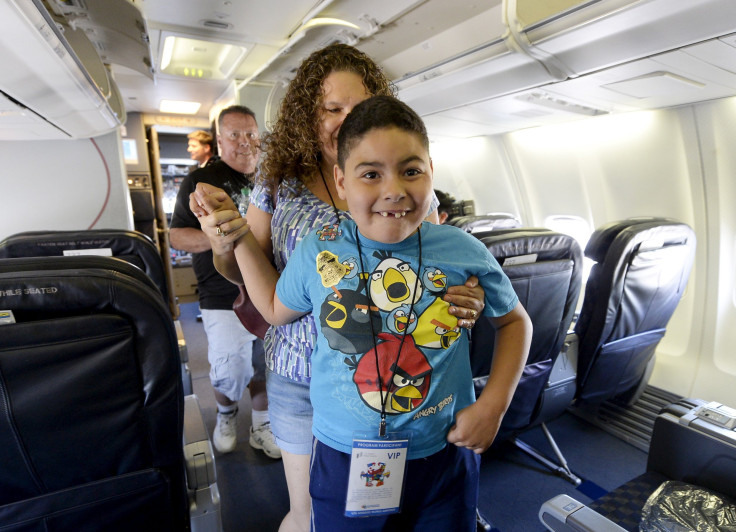Oxytocin-Laced Nasal Sprays Found To Help Children With Autism

Oxytocin-based nasal sprays might help develop social skills in children with autism, suggests a latest study conducted by researchers of the Brain and Mind Center at the University of Sydney.
Oxytocin is a naturally-occurring hormone in the human body. It is also known as the “love hormone” because of its role in parent-child and the couple relationship.
During the study, the researchers administered oxytocin nasal spray twice a day to 31 children aged between 3 and 8. The researchers found that the children, who received nasal spray as per the prescribed dosage, showed significant improvement in behavioral, social and emotional skills at the end of five weeks.
"The potential to use such simple treatments to enhance the long-term benefits of other behavioral, educational and technology-based therapies is very exciting," study co-author Ian Hickie, in a press release.
However, the researchers also notice a few side effects in children who were given oxytocin nasal spray. Such children complained of frequent urination, constipation and thirst. However, Hickie said that their study is the first one to show that drug treatment can actually help autistic children.
As a next step, the researchers are planning to see how oxytocin affects the brain's social circuitry that induces overall behavioral changes in children suffering from autism. The researchers aim to understand if there is a way to include oxytocin therapy as a part of treatment for autistic children.
"By showing that oxytocin can be put in a nasal spray and still improve some symptoms of autism, it makes this treatment more accessible for many who might benefit," said Alycia Halladay of the Autism Science Foundation, in an interview with CBS News.
However, Halladay further said that oxytocin should only be used in combination with other therapies, since it does not help improve all the symptoms associated with the condition.
© Copyright IBTimes 2025. All rights reserved.



















